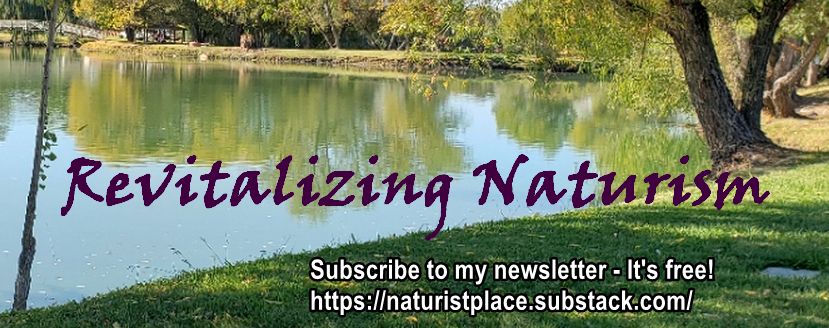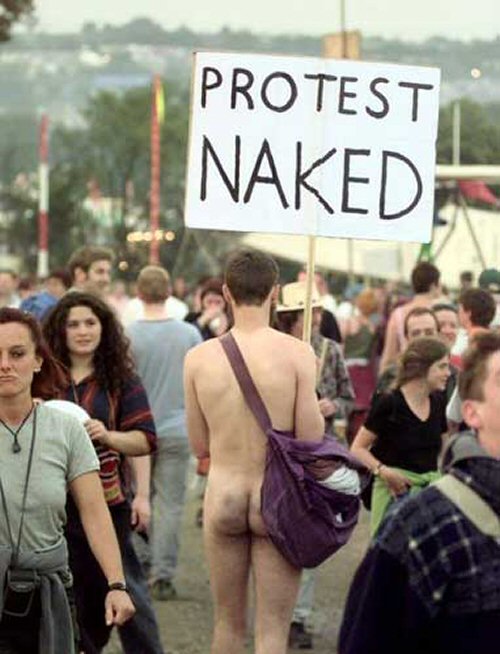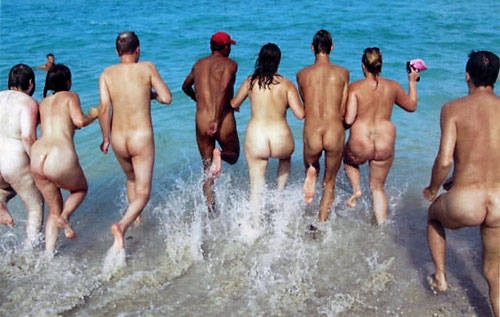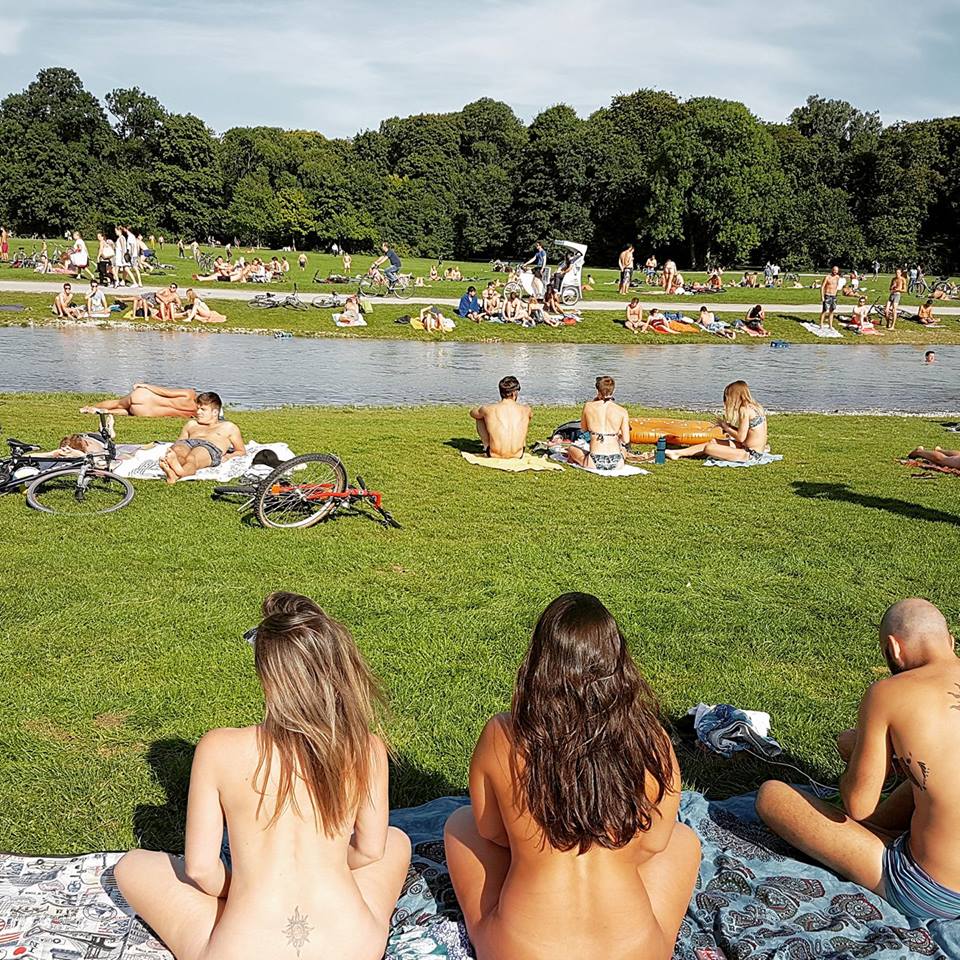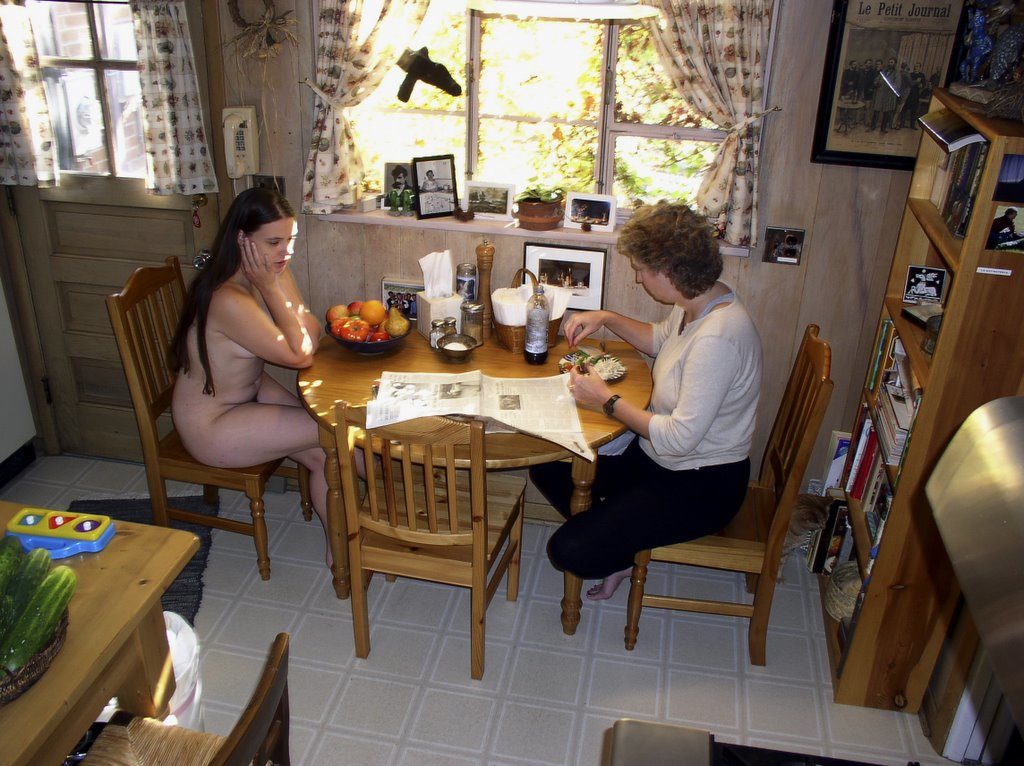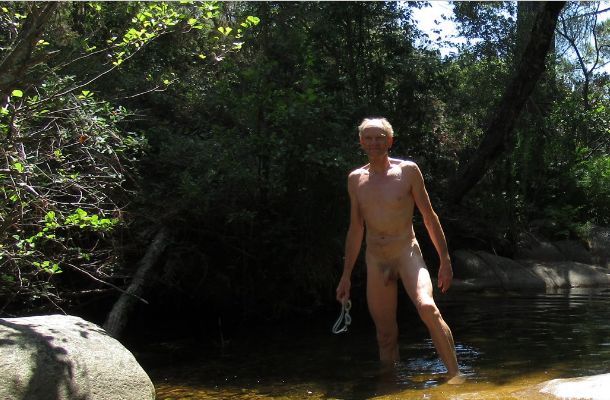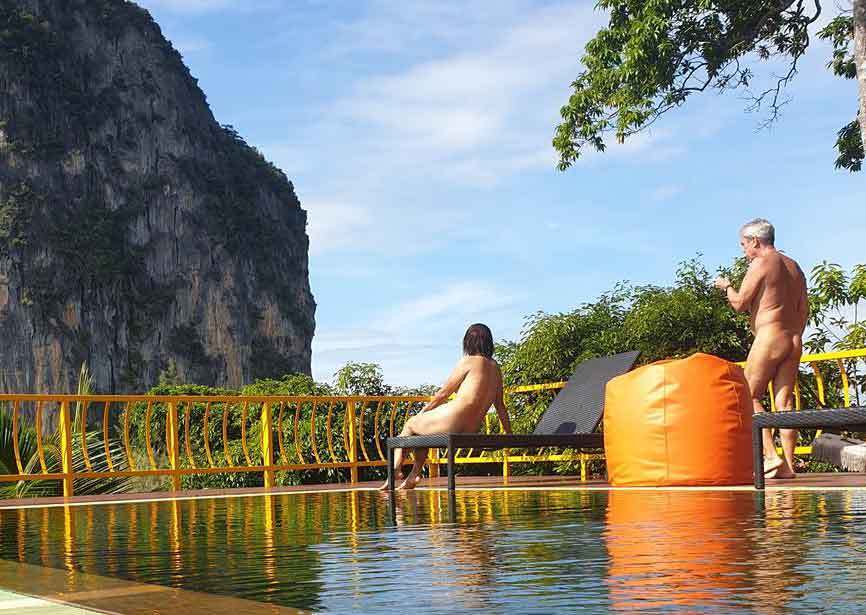
- The Joys of Living Naked
Dan, of The Meandering Naturist, found the recent New York Times article – which I discussed here – to be problematical in several ways, even though it presented a generally postive picture of naturism. Like Dan, I though the article was somewhat shallow and superficial. While having positive articles about naturism in prestigious mainstream media is a good thing, it’s obvious that non-naturist reporters generally don’t quite really grok what naturism is about. Naturism isn’t only about senior citizens who go about their daily lives naked in resorts that cater to them. That doesn’t quite get to why it is that people want to do such a strange thing.Dan wonders “whether a media splash like this actually helps or hurts the naturist cause.” He wishes (as I do) that the article had broadened the topic to explain the Joys of Living Naked. He notes that it wasn’t necessary to go to Florida to learn about the naturist lifestyle, because there are naturists right in New York City “who embrace the clothing-optional lifestyle, but not just on vacation or in retirement, but on a typical Sunday morning when the apartment is warm enough to be naked at home, even in December, and clothing is simply an option that isn’t necessary.” It’s just not necessary to go to a Florida resort to enjoy living naked, because nudity is enjoyable even in one’s own home.
We can all, like Dan, welcome “the seemingly growing trend amidst the general public as related to the tolerance of social nudity” – as evidenced by the Times article. It’s encouraging that there’s even “a photo of a fully nude woman – from the backside – working in the kitchen” – which suggests “we’ve all finally agreed that the nation’s children will not be harmed by the incidental sighting of unadorned buttocks.” Well, maybe readers of the Times, at least, are enlightened enough to get that.
Dan argues that naturists themselves, and the resorts they frequent, aren’t helping naturism by being “at least inadvertently, self-deprecating if not outright ridiculing themselves,” because they “simply can’t seem to resist nomenclature, sign-posts, and newsletter headlines that actually perpetuate the idea that ‘You naked people are all a little crazy’.” Sure, being lighthearted about one’s enthusiasms, instead of overly earnest about them, is OK – but going too far with that can backfire and give the wrong impression. Naturism isn’t a weird eccentricity or crotchet, but it’s not a solemn religion either. There are aficionados of many things – sports, physical fitness, computer games, etc. – who may veer too far in either direction, and naturists can do the same. But avoiding either extreme is probably the best way to go. Living naked is an enjoyable lifestyle – no more, perhaps, but no less.
So much for the philosophy of naturism. Dan concludes with several very good points about how best to start living naked. Here’s the list (but go read the article for the details):
- Talk to your neighbors
- Be an advocate
- Understand your windows
- Landscaping and sight-lines
- The wood burning stove
- Pareo or sauna towel
- Display nude artwork
- Naked gourmet dining
- And what about the WNBR?
I’ll be posting another article soon with some similar suggestions for enjoying a naked lifestyle – and at the same time normalizing nudity. - Constructive Ways to Celebrate and Promote Nudism
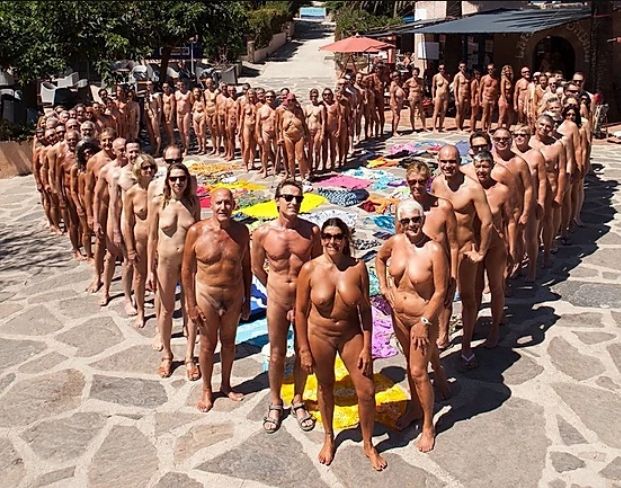
Here’s another voice supporting the idea of normalizing nudity: “Lately, we have been happy to see the hashtags #normalizenudism and #normalizenaturism going around social media.” Probably almost everyone who’s read this far will agree with the idea. But it will take more than that to make it actually happen. So this article adds six more suggestions about how to do that.- Lobby your local government for nude beaches & other naked places
While the goal is certainly important, this may put the cart before the horse. To be successful in the effort, there needs to be plenty of support in your community for designating nude beaches and naked places. And that probably means first convincing many in the community that nudity should be considered normal. How? Other suggestions here would be good places to start. - Come out to your family and friends
Absolutely. These are the first people who need to be persuaded that nudity is good. Watch here for much more about that. - Take a stand against anti-nudity policies
This is another cart before the horse. Official policies won’t change unless there’s community support for that. However, individual naturists should be supported publicly if they’re unfairly treated because of, for example, unreasonable complaints from neighbors. - Support nudist networks and businesses
If you’re fortunate enough to have naturist-friendly businesses in your area, you should certainly support them. If “networks” refers to regional or national organizations, they should be supported too – if they can, in return, support local naturists. Being active in online naturist groups will help individual naturists support each other and naturism in general. - Stop shaming others
Be careful how you deal with naturists who may have personal values different from yours. Shaming should be reserved only for people who link non-naturist values to naturism or behave unlawfully in ways inconsistent with naturism. - Share your first-time stories
Assuming you are “out” as a naturist, why stop with only the first-time stories? Don’t hesitate to let others know of all the enjoyable naturist things you do. Yes, most people feel a little awkward the first time they’re naked “in public”, so it’s good to let anyone who might be interested in naturism know that’s a very temporary problem. But also tell about how much can be enjoyed after becoming comfortable with nudity.
- Lobby your local government for nude beaches & other naked places
- British Naturism books out Hollywood Bowl in Ashford for naked session
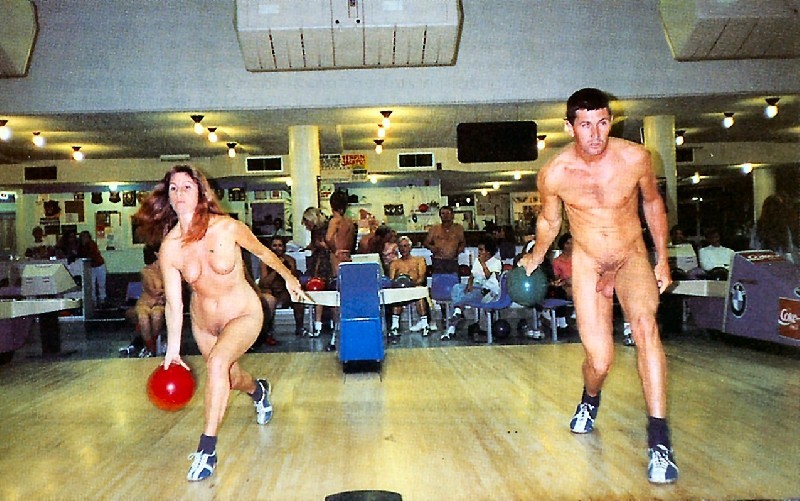
The news is that “The British Naturism (BN) has organised a social event in Ashford for its naked members.” British naturists are very fortunate to have a national organization that actually arranges for many local naturist events around the country. Naturists in the U. S. and other countries should be so lucky.Wait, what? Bowling??? Isn’t that something that went out of fashion, oh, 20 or 30 years ago? Well, yes, perhaps to some extent. But people – including naturists – still do it. Just stop to think about it for a moment. Bowling, despite its stodgy image, is an almost ideal activity for naturists. Bowling alleys (those still in business) are private (when reserved for naturists) and (usually) have comfortable temperatures regardless of the weather outdoors. The activity is generally very social, and individuals can concentrate on their own performance, instead of trying to defeat an opponent or win a competition (as in tennis and many other sports). Best of all, success in bowling depends more on skill than on strength, speed, or endurance – so people without exceptional physical gifts can do well. If naturists live somewhere there’s an alley nearby and they can get a sufficiently large group to rent the facility for a few hours, a bowling party could be a fun naturist activity at any time of the year.
More details: here
- Naked bathers want to ‘piggyback’ on Wild Atlantic Way’s success
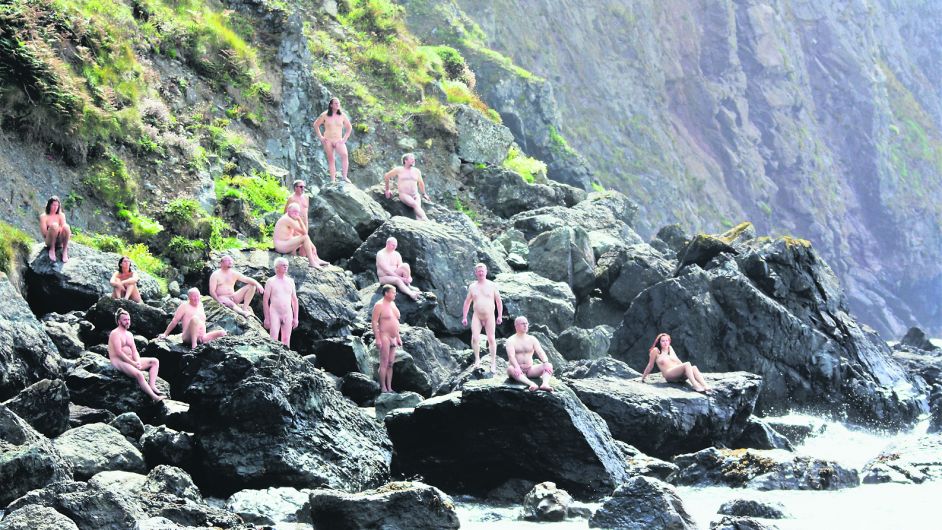
Nudity on certain public beaches in Ireland has actually been legal only since 2017. Yet many beaches in Cork County have been used discreetly by naturist for years. According to a spokesperson for the Irish Naturist Association, “West Cork boasts several beaches that have been attracting naturists for decades.” As I noted here, Ireland is rapidly becoming a good place for naturism.The “Wild Atlantic Way” (WAW) “is a tourism trail on the west coast, and on parts of the north and south coasts, of Ireland.” The spokesperson is calling for “providing signage and officially recognising many of the secluded ‘unofficial’ nudist beaches dotted along the region’s coast” – along the WAW route. The hope is that, given recognition, naturist usage of the beaches will become “very normal very quickly”, and consequently, naturists “will spend time and money in these areas.” Arguments like this should be effective in promoting naturist destinations elsewhere. This has definitely happened with Blind Creek Beach in St. Lucie County, Florida.
- I Went to a Nude Beach With a Friend, and We Loved It
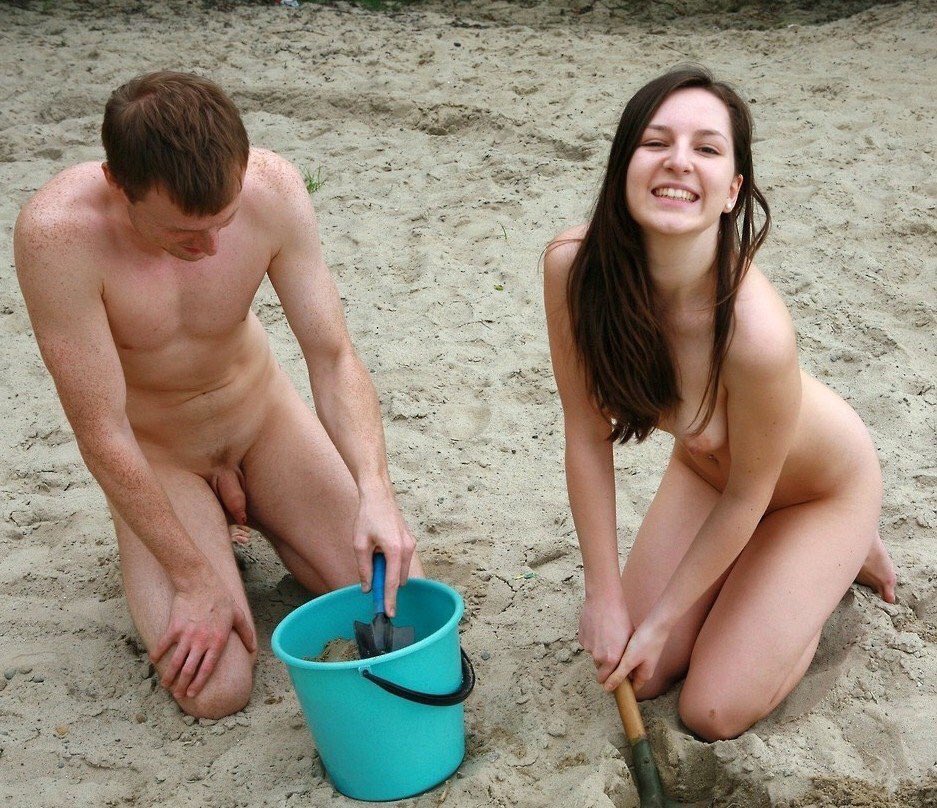
This is a pretty good first-time story. James, whose story this is, certainly had the right attitude: “Beach days are hard to beat. You are lying in the warm sunshine, have sand between your toes, and can hear the sound of waves crashing. What could be better, right? Maybe . . . going naked?” He invited his friend, Nicole, to go with him to check out Black’s Beach while he was visiting San Diego. Neither of them had been to a nude beach before, but they “were excited to see what it was all about.” Not surprisingly, for first-timers, James says that once on the beach, “it was very awkward for the first 20 minutes or so.” But after that, he dropped his “shorts, and ran straight into the ocean. Nicole quickly followed, and within minutes, it just wasn’t weird anymore.” Most readers who’ve tried it know that’s usually how it goes – if they get naked at all. Unfortunately, most non-naturists find this truth hard to believe. - Albemarle Co. yoga studio to host another nude class
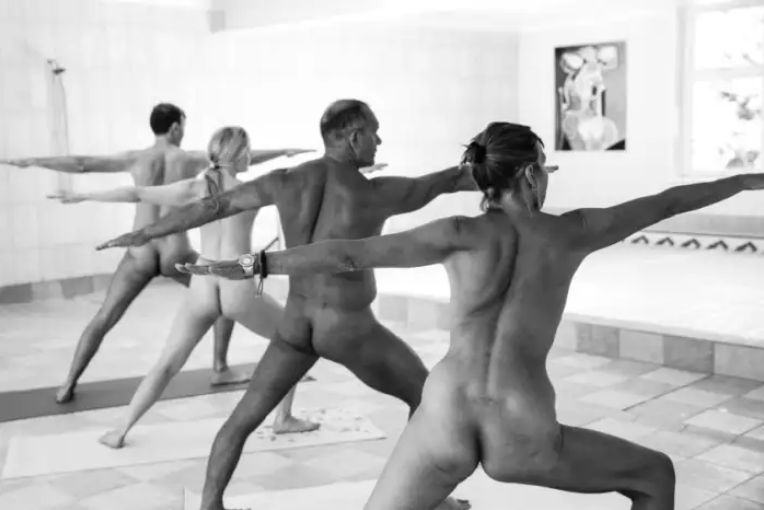
Charlottesville, a smallish city located in Albemarle County, Virginia is a college town, home of the University of Virginia, and the county population is about 150,000, so it’s not especially surprising that there are more than a dozen yoga studios in the area. However, only one of them, apparently, offers nude yoga sessions – the Elements Yoga Studio. Unfortunately, the sessions aren’t coed. There was a session for women in February, which “turned into a sold out event earlier in the month,” according to the article. A session for men was held on February 29, according to the studio’s calendar, and another one for women is scheduled for March 13.“The body-positive yoga allowed women to step into a safe, judgement-free [sic] space where they were free to take off as much clothing as they felt comfortable with,” the article says. So the class is actually just clothing-optional. There’s no information on how many opted to be naked. It’s a good thing, at least, that the option is available – even only once a month. Perhaps interest in nude activities will grow as more people have the opportunity to experience them.
More: here
